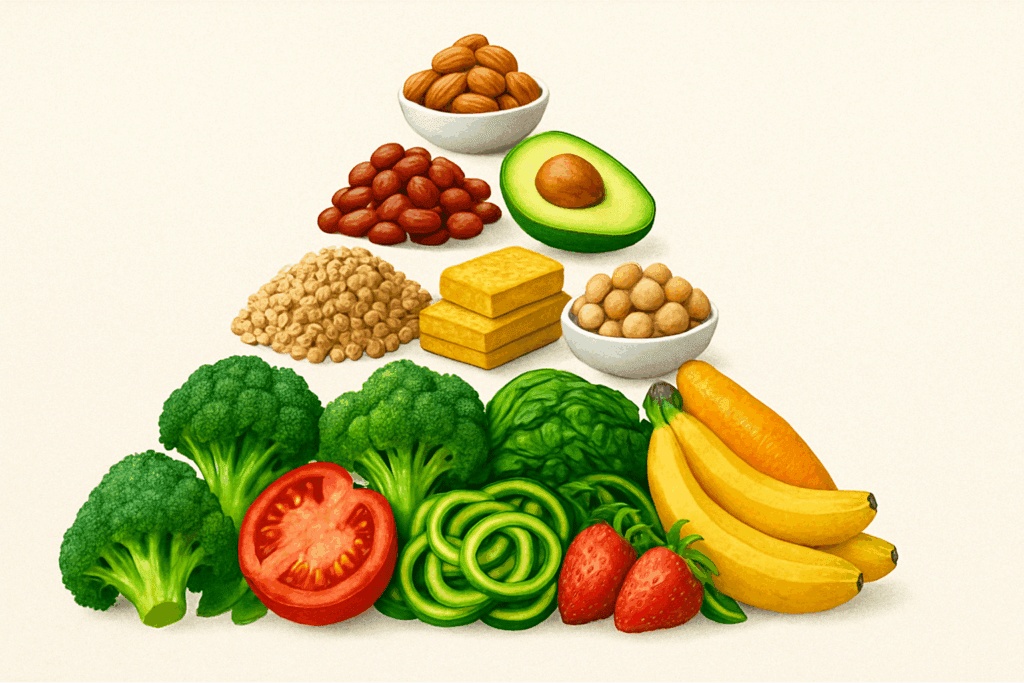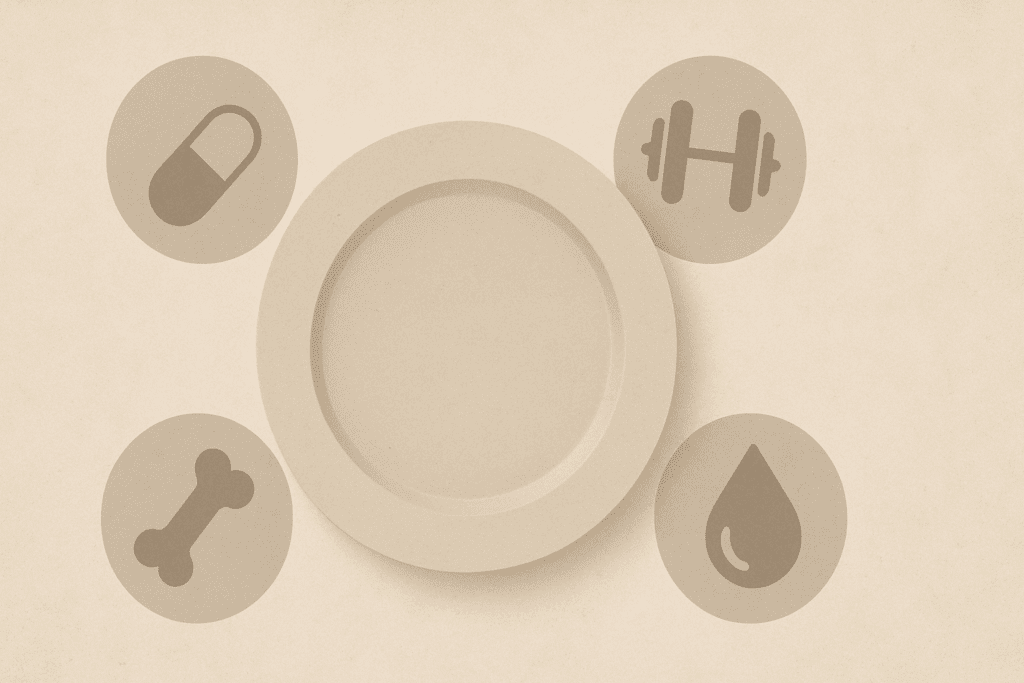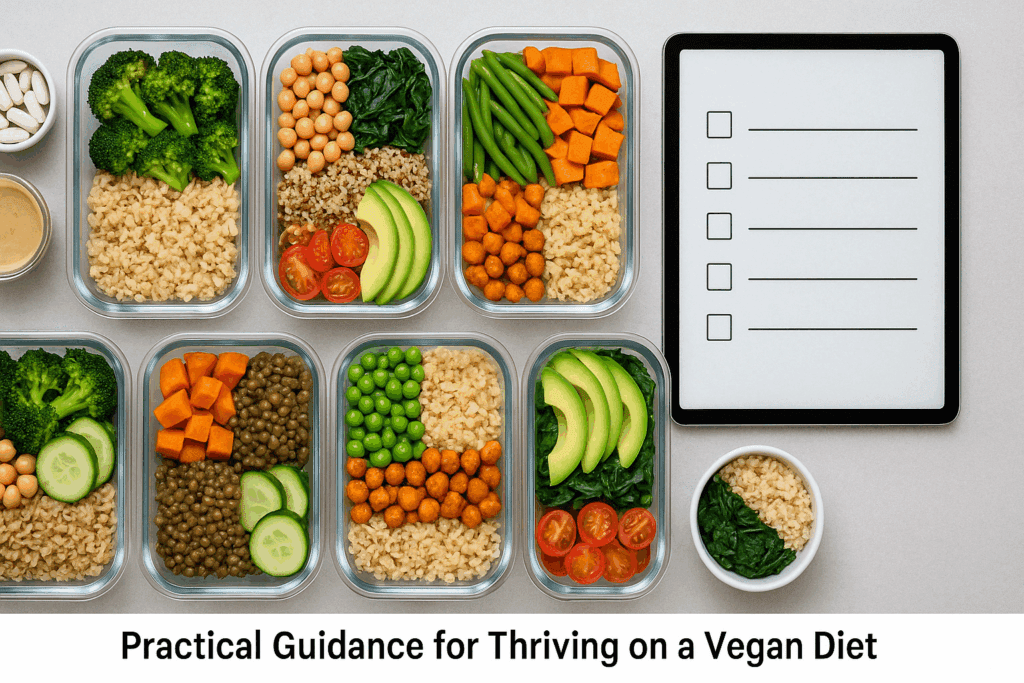In recent years, the rise of plant-based living has shifted from a niche lifestyle choice to a global movement. At the heart of this transformation lies a pressing question for many health-conscious individuals: is a vegan diet healthy long term? This question sparks passionate debates among nutritionists, medical professionals, and everyday eaters alike. While some hail veganism as the ultimate path to health and longevity, others raise concerns about potential deficiencies and the risks of dietary imbalance over time. For those navigating the complexities of plant-based nutrition, it becomes crucial to sift through myths, evaluate scientific evidence, and understand both the advantages and limitations of excluding all animal products from one’s diet.
You may also like: Plant Based Diet vs Standard American Diet: What the Latest Studies Reveal About Long-Term Health Outcomes
This article explores the full spectrum of scientific findings and expert opinions surrounding long-term veganism. It aims to provide a balanced, evidence-based perspective that addresses the many angles of this increasingly popular dietary choice. From the potential benefits and the risks of vegan diet practices to common misconceptions and signs of an unhealthy vegan lifestyle, we’ll explore how well a vegan diet supports health when followed over months, years, and even decades.
Understanding the Core Principles of a Vegan Diet
A vegan diet, often described simply as a “plant-based diet,” strictly eliminates all animal-derived products, including meat, dairy, eggs, and honey. Instead, it emphasizes whole foods such as fruits, vegetables, legumes, grains, nuts, and seeds. The rationale behind this diet varies from ethical concerns about animal welfare to environmental sustainability and personal health. For those exploring whether a vegan diet is healthy, it’s essential to begin by understanding the nutritional foundation of the lifestyle.
Unlike vegetarian diets, which may include dairy and eggs, vegan diets require individuals to meet all nutritional needs through entirely plant-based sources. This can introduce challenges, particularly in obtaining adequate levels of vitamin B12, iron, omega-3 fatty acids, calcium, and protein—nutrients traditionally abundant in animal products. However, when well-planned and nutritionally diverse, the vegan lifestyle can supply the body with a broad range of essential nutrients and antioxidants.
Yet, the transition to and maintenance of a vegan lifestyle requires more than good intentions. Whether or not a vegan diet is actually healthy long term depends on factors such as meal planning, food variety, supplementation, and awareness of individual health needs. Is going vegan healthy? The answer is nuanced, hinging on one’s approach to dietary choices and nutritional balance.

Health Benefits Associated with a Long-Term Vegan Diet
Proponents of plant-based eating often highlight a number of evidence-backed health advantages linked to vegan diets. Numerous studies have associated veganism with lower risks of heart disease, type 2 diabetes, high blood pressure, and certain types of cancer. These benefits are largely attributed to the diet’s high content of fiber, polyphenols, and phytonutrients, and its low levels of saturated fat and cholesterol.
Research indicates that vegans tend to have lower body mass indexes (BMIs) compared to omnivores. This finding aligns with broader epidemiological data suggesting that a meatless diet is healthy when it includes a rich variety of whole, unprocessed foods. In many cases, individuals following vegan diets also demonstrate improved markers of cardiovascular health, such as lower LDL cholesterol and better blood glucose regulation.
Additionally, emerging data suggests that long-term adherence to a vegan diet may contribute to increased longevity and reduced inflammation. These benefits, however, are contingent on the diet being balanced and diverse, not dominated by ultra-processed plant-based alternatives.
So, are vegans more healthy? When considering well-constructed diets rich in whole grains, legumes, vegetables, and fruits, the answer is often yes. Nonetheless, comparing health outcomes also depends on broader lifestyle factors, such as physical activity levels, smoking habits, and alcohol consumption.

Nutritional Challenges and the Cons of Veganism
Despite its many advantages, a vegan diet is not without drawbacks. One of the most frequently cited cons of vegan diet patterns involves nutrient deficiencies, particularly vitamin B12, iron, zinc, calcium, iodine, and long-chain omega-3 fatty acids. These nutrients are more bioavailable in animal-based foods, and their absence can lead to symptoms such as fatigue, cognitive decline, poor bone health, and compromised immune function.
A poorly planned vegan diet can indeed lead to significant health issues, reinforcing concerns about the dangers of vegan diet adherence without adequate knowledge or support. In fact, signs of an unhealthy vegan can include hair loss, muscle wasting, frequent infections, and neurological symptoms related to B12 deficiency. These symptoms serve as a cautionary reminder that even a plant-based approach requires thoughtful execution.
Long-term effects of vegan diet imbalances can become more pronounced over time, especially in populations with higher nutrient needs, such as pregnant women, growing children, and older adults. For this reason, it’s important to supplement where necessary and routinely monitor blood markers of health.
Critics often ask, why vegan diet is bad in some cases? The answer lies in its potential to be overly restrictive if not carefully balanced. The disadvantages of being vegan stem not from the absence of meat per se, but from a lack of diversity, insufficient planning, and reliance on processed foods with minimal nutritional value. These drawbacks of vegan diet practices highlight the need for comprehensive education and access to fortified foods and supplements.

Are Vegans Really the Healthiest? What Research Says
The claim that vegans are the healthiest individuals often sparks lively debate. On one hand, plant-based diets have been linked with favorable health outcomes in large population studies. On the other, these studies often fail to account for confounding variables such as exercise, smoking, and alcohol use.
It’s important to distinguish between correlation and causation when evaluating whether a vegan diet is really healthier. While vegans may experience certain health benefits, those advantages can also be achieved through a Mediterranean or flexitarian diet that includes small amounts of lean animal products. Therefore, the question isn’t simply, is the vegan diet the healthiest? but rather, is it optimal for everyone?
Comparative studies suggest that while vegans tend to have better lipid profiles and lower risks for metabolic syndrome, they may also have lower bone mineral density and higher risks of fractures if calcium and vitamin D intake are inadequate. The risk-benefit profile thus varies according to individual factors, including genetic predisposition, activity levels, and dietary variety.
Furthermore, some critics argue that the vegan diet is unhealthy for certain individuals, particularly those with existing absorption disorders or specific metabolic conditions. The blanket assumption that veganism is good for everyone does not hold under clinical scrutiny. Instead, personalized nutrition and functional assessments should guide dietary recommendations, even within the broader umbrella of the vegan lifestyle.
Debunking Common Misconceptions About Veganism
One of the prevailing myths about veganism is that all plant-based diets are automatically healthy. However, the presence of processed vegan snacks, sugary desserts, and faux meats can make the vegan diet just as nutritionally imbalanced as any other poorly planned eating pattern. Therefore, it is critical to differentiate between a whole-food vegan diet and a junk-food vegan diet.
Another widespread belief is that plant proteins are inherently inferior. While it’s true that some plant proteins lack certain essential amino acids, combining a variety of sources—such as beans and rice—can provide all the necessary building blocks for human health. When properly managed, a vegan diet can fully support athletic performance, muscle growth, and physical endurance.
The notion that going vegan leads to immediate and dramatic health improvements is also misleading. While some individuals experience initial benefits such as improved digestion or increased energy, others may face going vegan side effects like bloating, fatigue, or nutrient deficiencies. These experiences are highly individualized and depend on the person’s previous diet, gut microbiome, and transition strategy.
Lastly, the belief that veganism is entirely risk-free can be dangerous. The risks of vegan diet choices stem from over-reliance on supplements, inadequate medical supervision, or unrealistic expectations. Although many vegans thrive, others encounter unexpected challenges that require professional guidance. Therefore, an honest examination of both the pros and cons of being vegan is essential for long-term success.
Examining the Long-Term Effects of Vegan Diet Adherence
While short-term studies often highlight the benefits of plant-based eating, fewer studies focus on the decades-long impact of strict veganism. Nonetheless, the data that does exist suggests that the long-term effects of vegan diet adherence can vary widely depending on individual compliance, nutrient intake, and lifestyle.
Positive effects may include lower risk of chronic illnesses, improved gut microbiota diversity, and sustained weight management. However, these benefits may plateau or even reverse if nutritional gaps go unaddressed. For example, chronic low intakes of B12 or DHA can contribute to cognitive decline over time. Similarly, the absence of sufficient dietary calcium can lead to osteoporosis in later life.
Despite these challenges, many long-term vegans report feeling energized and healthier compared to their omnivorous past. These outcomes are most commonly observed in individuals who invest time in learning about food synergy, nutrient absorption, and responsible supplementation. In contrast, those who follow a vegan diet casually or without proper support may encounter more frequent vegan side effects and complications.
Therefore, the long-term success of a vegan lifestyle depends heavily on education, dietary mindfulness, and proactive healthcare. The vegan diet is not a quick fix but a long-term commitment that requires ongoing attention and adaptation. It can be healthy and sustainable, but only when approached with diligence and self-awareness.
Practical Guidance for Thriving on a Vegan Diet
For those committed to a vegan lifestyle, success hinges on informed choices and strategic planning. A diet rooted in whole foods—colorful vegetables, whole grains, legumes, nuts, and seeds—can offer comprehensive nourishment. However, supplementation may still be necessary for nutrients such as B12, vitamin D, iodine, and EPA/DHA omega-3s, which are challenging to obtain from plants alone.
Regular health monitoring is another essential component. Blood tests can help identify early signs of nutrient depletion, such as declining ferritin levels or elevated homocysteine—markers that may indicate risks associated with long-term veganism. Proactively addressing these concerns reduces the likelihood of serious health issues developing.
Moreover, variety is vital. Eating the same foods repeatedly can lead to nutrient gaps, regardless of diet type. Those considering a long-term vegan diet should explore the full diversity of the plant kingdom, incorporating fermented foods, sea vegetables, and sprouted grains to maximize nutrient absorption and support gut health.
Working with a dietitian who understands plant-based nutrition can further ensure that your approach is safe and personalized. These professionals can help tailor your intake based on age, health status, and activity level, minimizing the disadvantages of being vegan while maximizing its many benefits.
Frequently Asked Questions: The Long-Term Health Effects of a Vegan Diet
1. What are some subtle signs of an unhealthy vegan that people often overlook?
While common concerns include fatigue and nutrient deficiencies, more subtle signs of an unhealthy vegan include recurring skin issues, poor wound healing, brittle nails, and frequent mood swings. These may reflect long-term nutrient imbalances, particularly in zinc, omega-3 fatty acids, and vitamin B12. In some cases, people mistakenly believe that simply avoiding animal products guarantees health, ignoring the risks of vegan diet deficiencies that can accumulate silently over time. For those wondering whether a vegan diet is healthy long term, paying attention to these early indicators is crucial. A lack of dietary diversity, insufficient sun exposure, and over-reliance on processed vegan foods may contribute to such overlooked symptoms.
2. Are there psychological or emotional side effects linked to the vegan lifestyle?
Yes, emerging research and anecdotal evidence suggest that the vegan lifestyle can impact mental health, particularly when nutrient needs are not met. Long-term effects of vegan diet adherence without adequate omega-3s or B vitamins have been associated with mood disturbances, including depression and anxiety. This doesn’t mean that veganism is inherently harmful; rather, it reinforces the need for planning and supplementation. Critics who argue why veganism is bad often cite these issues, but with proper care, these outcomes can often be prevented. It’s also important to consider the psychological stress that may arise from navigating social settings or coping with rigid dietary expectations, which may further influence well-being.
3. Is it true that some individuals experience going vegan side effects even after switching to a whole-food plant-based version?
Yes, even those following a whole-food vegan diet may encounter going vegan side effects such as digestive upset, bloating, or fatigue, especially during the initial transition phase. These effects often stem from sudden increases in fiber intake or shifts in gut microbiota, which can temporarily disrupt digestion. The cons of vegan diet choices are not always about nutrient gaps but also about how the body adjusts to dietary changes. Those who question whether the vegan diet is the healthiest should understand that individual variability plays a major role. A gradual shift and incorporation of fermented foods can ease the transition and reduce discomfort.
4. Are vegans the healthiest eaters, or does the label hide hidden risks?
While many assume that plant-based equals optimal health, this isn’t always the case. Are vegans more healthy overall? That depends on food quality, variety, and lifestyle habits beyond diet. It’s entirely possible for someone to adopt a “vegan diet vegan” that’s rich in processed snacks, low in essential nutrients, and high in added sugars—yet still technically plant-based. The drawbacks of vegan diet practices like these can result in inflammation, insulin resistance, or nutrient depletion over time. So, when we ask, “Are vegans the healthiest?” we must also examine how the diet is constructed, not just the label itself.
5. How can one mitigate the long-term risks of vegan diet practices without abandoning the lifestyle?
To minimize vegan risks without giving up the lifestyle, regular blood testing and nutritional tracking are vital. Supplementing wisely—especially for B12, D3, iodine, and omega-3s—can fill essential gaps and reduce the dangers of vegan diet patterns. It’s also important to rotate food choices and avoid eating the same staples day after day, which can inadvertently lead to nutrient deficiencies. While some argue that a vegan diet is unhealthy if it requires supplementation, others counter that modern farming practices make even omnivorous diets incomplete without fortification. Ultimately, whether a vegan diet is good for you in the long run depends on proactive, informed choices.
6. Why do some former vegans claim that veganism made them feel worse over time?
Some individuals report feeling worse on a vegan diet due to unresolved deficiencies or unrealistic expectations. These personal accounts fuel narratives around why vegan diet is bad, though they don’t represent all experiences. For some, symptoms like fatigue or hair loss stem from poor absorption of iron or zinc, not the exclusion of meat per se. Others may encounter social isolation or dietary fatigue, leading to emotional and psychological burnout. This doesn’t necessarily mean veganism is unhealthy, but it illustrates the importance of customization and ongoing self-assessment.
7. Is a meatless diet healthy for children and adolescents, or does it carry more risks?
When properly planned, a meatless diet is healthy for children and teens, but it requires close monitoring and guidance from a pediatric dietitian or healthcare provider. Growth, development, and cognitive function rely heavily on adequate intake of iron, zinc, DHA, and B12—nutrients that are more challenging to obtain from plants alone. The cons of being vegan at a young age may include slower growth or developmental delays if these needs are not met. Still, with the right support, vegan children can thrive. It’s a question not of whether is going vegan healthy, but whether it’s nutritionally complete and personalized to each stage of growth.
8. Are there environmental or ethical reasons some people persist with veganism despite potential health drawbacks?
Absolutely. Many individuals who recognize the cons of veganism from a health standpoint still adhere to the diet for ethical, spiritual, or environmental reasons. In these cases, the disadvantages of being vegan may be consciously accepted as trade-offs for greater alignment with one’s values. For example, someone might experience mild vegan side effects but feel morally committed to animal welfare or carbon reduction goals. Understanding whether veganism is good for you involves not just physical health, but also emotional fulfillment and personal convictions. This broader perspective highlights how lifestyle choices are rarely based on nutrition alone.
9. How does long-term veganism influence gut health and microbiome diversity?
The long-term effects of vegan diet practices can lead to changes in gut flora, often increasing the abundance of fiber-fermenting bacteria. This shift can enhance gut integrity and reduce inflammation, but it may also reduce microbial diversity if the diet lacks variety. Those interested in whether a vegan diet is healthy should understand that gut health is a dynamic ecosystem influenced by both plant and animal inputs. In some individuals, exclusive plant-based eating may lead to reduced levels of butyrate-producing bacteria, impacting immune resilience. Strategic additions like fermented foods, prebiotics, and resistant starches can help balance these microbial shifts and mitigate potential cons of veganism.
10. What are the most misunderstood dangers of vegan diet patterns in popular culture?
Among the most misunderstood dangers of vegan diet adherence is the belief that it’s inherently detoxifying or curative. This oversimplification can prevent individuals from seeking medical help when symptoms arise, assuming their fatigue or brain fog is just part of a “healing process.” Another overlooked issue is the normalization of low energy and weight loss, which may actually be signs of an unhealthy vegan experience. The narrative that veganism is good for everyone all the time ignores the complexity of biochemical individuality. As with any lifestyle, balance, variety, and professional guidance remain essential to long-term success.

Conclusion: Is a Vegan Diet Healthy Long Term? Navigating the Benefits, Risks, and Realities of a Meatless Lifestyle
In answering the central question—is a vegan diet healthy long term—we uncover a layered truth. Veganism can be an incredibly beneficial lifestyle when practiced with care, knowledge, and adaptability. It can reduce the risk of chronic diseases, support environmental sustainability, and promote overall well-being. However, the dangers of vegan diet mismanagement are real and should not be overlooked. The presence of vegan risks, such as nutrient deficiencies and metabolic imbalances, underscores the need for mindful planning and professional oversight.
Equally important is the realization that the vegan lifestyle is not inherently superior or appropriate for everyone. While many are drawn to the ethical and ecological virtues of veganism, health outcomes ultimately depend on the quality of one’s dietary practices. Are vegans the healthiest? They certainly can be—but only when their food choices reflect a deep understanding of human nutritional needs.
As with any dietary pattern, the success of a meatless diet depends on intention, consistency, and education. It is not enough to simply eliminate animal products; one must also replace them with equally nourishing alternatives. The drawbacks of vegan diet adherence, including the cons of veganism and the risks of vegan diet nutritional gaps, are not insurmountable, but they must be acknowledged and addressed.
Ultimately, the question isn’t just is veganism good for you? It’s are you practicing veganism in a way that supports your long-term health? By embracing the complexity of this discussion and committing to informed choices, individuals can enjoy the benefits of plant-based living while minimizing its potential pitfalls.
Was this article helpful? Don’t let it stop with you. Share it right now with someone who needs to see it—whether it’s a friend, a colleague, or your whole network. And if staying ahead on this topic matters to you, subscribe to this publication for the most up-to-date information. You’ll get the latest insights delivered straight to you—no searching, no missing out.
Further Reading:
The Impact of a Vegan Diet on Many Aspects of Health: The Overlooked Side of Veganism
Plant-based diets are best… or are they?
Are there health benefits to going vegan?
Disclaimer
The information contained in this article is provided for general informational purposes only and is not intended to serve as medical, legal, or professional advice. While NewsHealthWatch strives to present accurate, up-to-date, and reliable content, no warranty or guarantee, expressed or implied, is made regarding the completeness, accuracy, or adequacy of the information provided. Readers are strongly advised to seek the guidance of a qualified healthcare provider or other relevant professionals before acting on any information contained in this article. NewsHealthWatch, its authors, editors, and contributors expressly disclaim any liability for any damages, losses, or consequences arising directly or indirectly from the use, interpretation, or reliance on any information presented herein. The views and opinions expressed in this article are those of the author(s) and do not necessarily reflect the official policies or positions of NewsHealthWatch.

